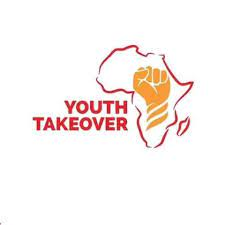
Africa is home to the world’s largest and fastest-growing youth population, with over 420 million people between the ages of 15 and 35. This demographic presents a significant opportunity for economic growth, innovation, and development. However, many African youth face substantial challenges in accessing education, employment, and economic opportunities. To address this, various organizations, governments, and institutions have launched youth entrepreneurship programs aimed at empowering young Africans to become job creators rather than job seekers.
The State of Youth Entrepreneurship in Africa
Africa’s youth are increasingly interested in entrepreneurship as a career path. According to a report by the African Development Bank, 70% of African youth aspire to become entrepreneurs. However, many face significant barriers, including limited access to funding, lack of business skills, and inadequate infrastructure. Despite these challenges, there are many success stories of young African entrepreneurs who have gone on to create successful businesses, create jobs, and contribute to their local economies.
Types of Youth Entrepreneurship Programs in Africa
- Business Incubators and Accelerators: These programs provide young entrepreneurs with resources, mentorship, and networking opportunities to help them grow their businesses. Examples include the Tony Elumelu Foundation Entrepreneurship Programme and the Google Launchpad Accelerator.
- Training and Capacity Building: These programs focus on equipping young entrepreneurs with the skills and knowledge needed to start and run a successful business. Examples include the African Management Initiative and the Entrepreneurship and Innovation Academy.
- Funding and Investment: These programs provide young entrepreneurs with access to funding, grants, and investments to help them launch and grow their businesses. Examples include the African Development Bank’s Youth Entrepreneurship Program and the Global Entrepreneurship Fund.
- Mentorship and Networking: These programs connect young entrepreneurs with experienced mentors and industry experts, providing them with valuable guidance and networking opportunities. Examples include the African Entrepreneurship Network and the Young Entrepreneurs Forum.
Examples of Successful Youth Entrepreneurship Programs in Africa
- Tony Elumelu Foundation Entrepreneurship Programme: This program has supported over 10,000 young African entrepreneurs with funding, mentorship, and training, resulting in the creation of thousands of jobs and businesses.
- Mastercard Foundation’s Young Africa Works: This program aims to support 10 million young Africans in finding employment or becoming entrepreneurs by 2030, with a focus on agriculture, entrepreneurship, and vocational training.
- African Development Bank’s Youth Entrepreneurship Program: This program provides funding, training, and mentorship to young African entrepreneurs, with a focus on creating jobs and promoting economic growth.
Challenges and Opportunities
While youth entrepreneurship programs in Africa have shown significant promise, there are still many challenges to be addressed. These include:
- Limited Access to Funding: Many young entrepreneurs struggle to access funding, which can limit the growth and scalability of their businesses.
- Inadequate Infrastructure: Poor infrastructure, including transportation, energy, and digital connectivity, can hinder the growth of businesses.
- Regulatory Barriers: Complex regulatory environments can create barriers for young entrepreneurs, making it difficult for them to start and grow their businesses.
Despite these challenges, there are many opportunities for youth entrepreneurship programs in Africa to make a significant impact. These include:
- Growing Demand for Digital Services: Africa’s rapidly growing digital economy presents opportunities for young entrepreneurs to create innovative digital solutions.
- Increasing Access to Funding: New funding models, such as crowdfunding and impact investing, are emerging, providing young entrepreneurs with new opportunities to access capital.
- Growing Entrepreneurial Ecosystem: The entrepreneurial ecosystem in Africa is growing, with more incubators, accelerators, and networking opportunities emerging to support young entrepreneurs.
Conclusion
Youth entrepreneurship programs in Africa have the potential to make a significant impact on the continent’s economic development. By providing young entrepreneurs with the skills, knowledge, and resources they need to succeed, these programs can help create jobs, stimulate innovation, and drive economic growth. However, more needs to be done to address the challenges faced by young entrepreneurs, including limited access to funding, inadequate infrastructure, and regulatory barriers. With the right support and resources, Africa’s youth can become a powerful force for economic development and growth
